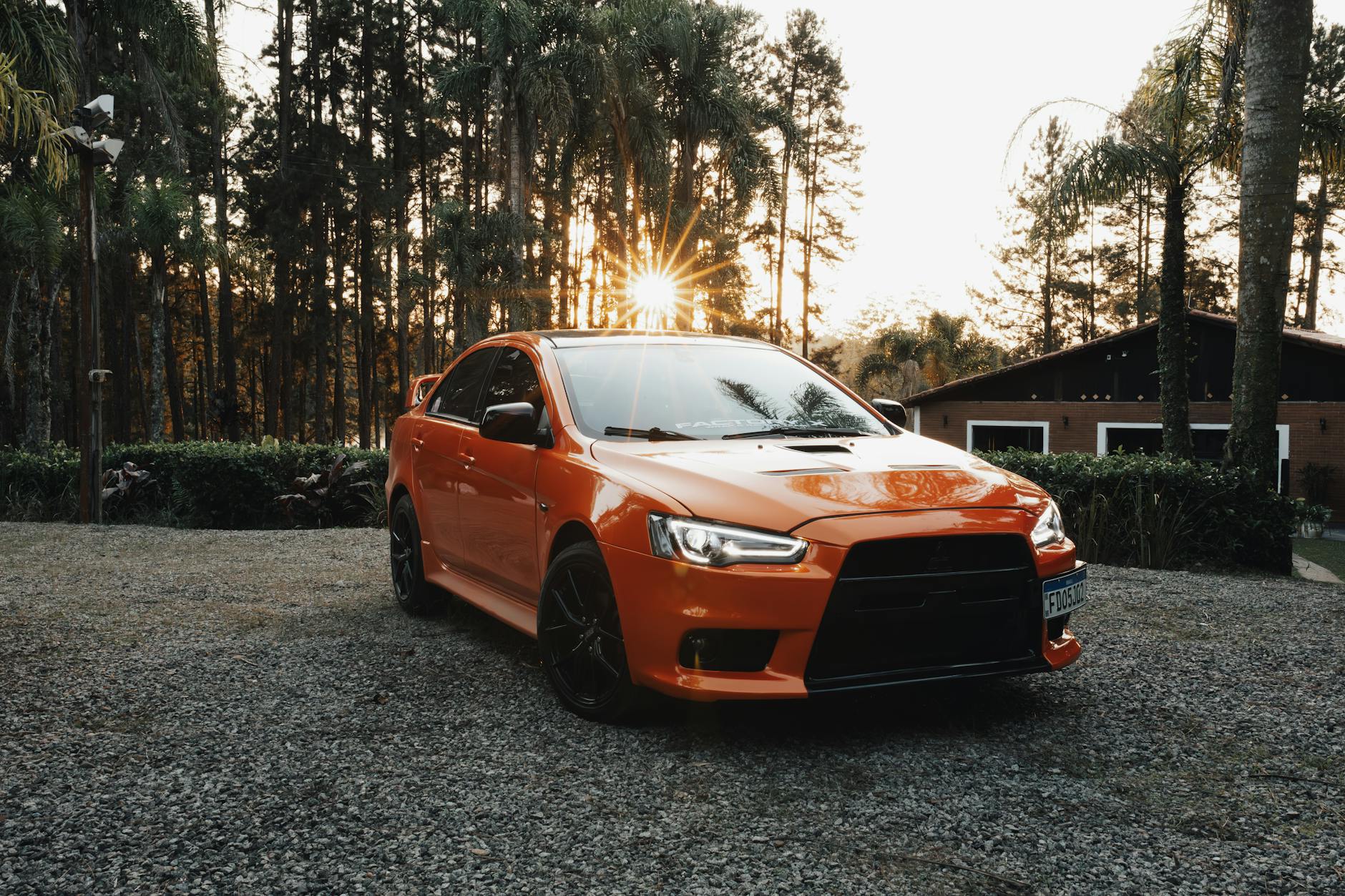Understanding PCP Finance
PCP Overview
Personal Contract Purchase (PCP) finance is a popular option for car buyers in the UK. It involves lower monthly payments because a large portion of the car’s value is deferred to the end of the contract. This deferred payment, known as the balloon payment, is based on the Guaranteed Minimum Future Value (GMFV) of the car.
A PCP agreement typically consists of the following components:
- Deposit: An initial payment made at the start of the contract.
- Monthly Payments: Regular payments made over the term of the contract.
- Balloon Payment: The final lump sum to be paid if you choose to keep the car.
To get a better understanding of how much you might pay, you can use a pcp car leasing calculator. This tool helps estimate your monthly payments and the balloon payment based on the car’s value and the contract terms.
| Component | Description |
|---|---|
| Deposit | Initial payment at the start of the contract |
| Monthly Payments | Regular payments over the contract term |
| Balloon Payment | Final lump sum to keep the car |
For more details on PCP finance, visit our section on personal contract purchase (pcp).
End of PCP Agreement Options
At the end of a PCP agreement, you have three main options:
- Return the Car: Hand the car back to the finance company. This is a straightforward option if you do not wish to keep the car.
- Purchase the Car: Pay the balloon payment to own the car outright. This option might involve refinancing the balloon payment to make it more manageable.
- Trade-In the Car: Use the car’s equity as a deposit for a new vehicle. This allows you to start a new PCP agreement with a newer model.
| Option | Description |
|---|---|
| Return the Car | Hand the car back to the finance company |
| Purchase the Car | Pay the balloon payment to own the car |
| Trade-In the Car | Use the car’s equity for a new PCP agreement |
For more insights on end-of-PCP decisions, check our article on tips for end-of-PCP decisions.
Understanding these options can help you make an informed decision when your PCP agreement comes to an end. For more tools and comparisons, visit our pcp calculator and explore various pcp car finance products available.
Refinancing PCP Balloon Payment
Refinancing Process
Refinancing the balloon payment on a PCP agreement can be an effective way to manage the final lump sum. To start the refinancing process, you will need to obtain a settlement figure from your current lender. This figure represents the outstanding amount you need to pay to keep the car. Once you have this figure, you can submit an application to explore refinancing options (We Finance Any Car). Upon approval, you will enter into a new finance agreement, allowing you to break down the balloon payment into more manageable monthly instalments.
Benefits of Refinancing
Refinancing your PCP balloon payment offers several benefits. It allows you to extend the repayment period, which can make the final amount more manageable. Breaking the payment into monthly instalments provides peace of mind while still allowing you to enjoy your vehicle (We Finance Any Car). This flexibility is particularly useful if you want to avoid a large one-time payment.
Options for Refinancing
When it comes to refinancing your PCP balloon payment, you have multiple options:
Hire Purchase (HP): HP allows you to spread the cost of the balloon payment over a set number of months. Once all payments are made, you own the vehicle outright. This option can be beneficial if you prefer a straightforward repayment plan.
Another PCP Agreement: You can opt for another PCP agreement, allowing you to continue with monthly payments and potentially upgrade to a newer model at the end of the term. This option provides flexibility in terms of payment structuring and term lengths (We Finance Any Car).
Specialized Finance Solutions: Some providers offer specialized finance solutions tailored to various credit backgrounds, including adverse credit histories. This increases your chances of approval and helps secure the financing needed to manage the final payment of your PCP car (We Finance Any Car).
For more options and to explore refinancing tools, visit our pcp car loan calculator or check out the pcp car leasing calculator.
Example Table of Refinancing Options
| Refinancing Option | Monthly Payment | Total Cost | Ownership at End |
|---|---|---|---|
| Hire Purchase (HP) | £200 | £12,000 | Yes |
| Another PCP Agreement | £150 | £13,000 (incl. GMFV) | No (Option to buy) |
| Specialized Finance | £180 | £11,500 | Yes |
For additional information on PCP agreements and refinancing options, refer to our articles on pcp car finance and pcp car deals.
Comparing PCP with Other Financing Options
When exploring different financing options for your next car, it’s essential to understand how Personal Contract Purchase (PCP) compares to other methods. This section will compare PCP with credit union loans and provide considerations for leasing versus buying.
PCP vs. Credit Union Loan
PCP finance involves lower monthly payments because a significant portion of the car’s value is deferred to the end of the contract (Monaghan Credit Union). This deferred amount, known as the balloon payment, is an option for those who wish to own the car outright at the end of the agreement.
In contrast, a credit union car loan provides immediate ownership of the vehicle. The loan is typically repaid in fixed monthly installments, which include both principal and interest. This method offers straightforward ownership without any large lump sum payment at the end of the term.
| Financing Option | Ownership | Monthly Payments | End of Term Payment |
|---|---|---|---|
| PCP | Deferred | Lower | Balloon Payment |
| Credit Union Loan | Immediate | Fixed | None |
For more on how PCP works, visit our detailed pcp car finance explained page.
Benefits of Credit Union Loans
Credit union loans come with several advantages over PCP finance:
- Immediate Ownership: You own the car from the start, with no large balloon payment at the end.
- Predictable Payments: Fixed monthly payments make it easier to budget.
- Potentially Lower Interest Rates: Credit unions often offer competitive interest rates.
- No Mileage Restrictions: Unlike PCP, there are no mileage limits or excess mileage charges.
Considering these benefits, you might find a credit union loan a better option for your needs. For more information, visit our pcp car loan explained page.
Lease Vs. Buy Considerations
When deciding between leasing and buying a car, several factors come into play. Leasing typically involves lower monthly payments, making it an attractive option for those who prefer driving newer vehicles every few years (Edmunds). Leasing contracts also often include maintenance, reducing unexpected expenses.
On the other hand, buying a car, whether new or used, allows you to eventually be payment-free once the loan is paid off. This can be a more economical choice in the long term, especially if you plan to keep the car for many years.
| Factor | Leasing | Buying |
|---|---|---|
| Monthly Payments | Lower | Higher |
| Ownership | No | Yes |
| Maintenance | Often Included | Owner’s Responsibility |
| Flexibility | Higher | Lower |
| Long-term Cost | Higher | Lower |
Leasing might be beneficial for those who want an upscale car for business purposes or enjoy the latest technology. However, if you prefer long-term savings and ownership, buying is likely the better choice.
For more details on leasing, you can explore our pcp car leasing deals page. And for a deeper comparison, check out our pcp vs hp article.
Tips for End-of-PCP Decisions
When your Personal Contract Purchase (PCP) agreement comes to an end, you have three primary options to consider. Each choice has its own benefits and implications, so it’s important to understand what each entails.
Buying the Car
If you decide to keep the car, you will need to make the optional final payment, also known as the balloon payment. This amount was agreed upon at the beginning of your term and is typically a lump sum. If you cannot afford to pay this amount outright, you have the option of refinancing it with a Hire Purchase contract.
Using a pcp car leasing calculator can help you determine the final payment and plan your finances accordingly.
Trading in the Car
Trading in the car is another viable option. In this scenario, the dealer will settle the remaining finance on your behalf and set up a new finance arrangement for your next vehicle. This process is typically smooth and minimizes any disruption, allowing you to transition seamlessly to a new car.
Consider using our pcp car finance comparison tool to explore new deals and find the best option for your next vehicle.
Returning the Car
Returning the car to the lender is the third option. You need to ensure that the car is in good condition and within the pre-agreed mileage limit. Any damage beyond fair wear and tear, or exceeding the mileage limit, may result in extra charges (Buyacar).
The car will be assessed according to the fair wear and tear guidelines set by the British Vehicle Rental and Leasing Association. Damages, excess mileage, and missing equipment are the primary factors that can result in extra charges. These charges can include penalty fees for exceeding mileage, repair costs for damages, and replacement costs for missing documents or equipment (Buyacar).
| Factor | Potential Charge |
|---|---|
| Excess Mileage | £0.10 – £0.20 per mile |
| Damage Repairs | Varies based on extent |
| Missing Equipment | Replacement cost |
Using a pcp agreement calculator can help you estimate potential charges and plan ahead to avoid unexpected costs.
For detailed guidance and more tips on managing the end of your PCP term, visit our article on pcp car finance explained.


